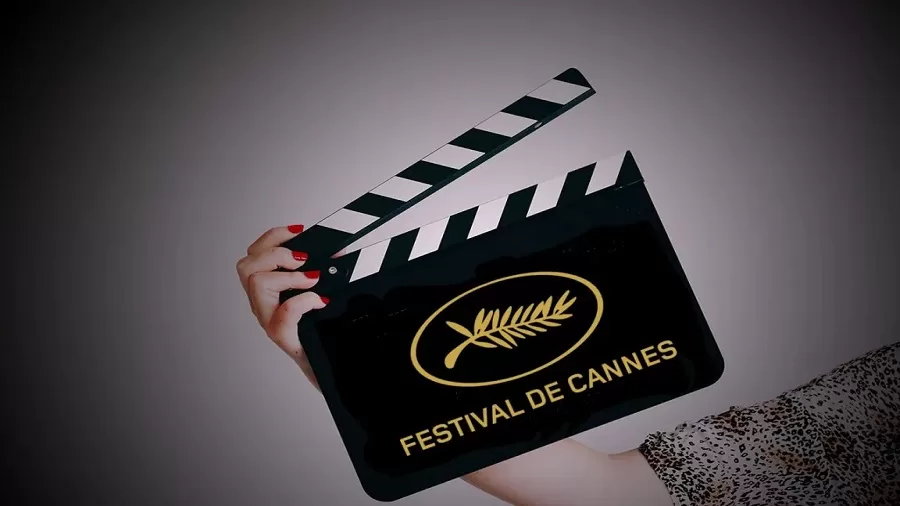Entertainment
Tuxedos, Trains & Trailblazing Films: Inside Cannes 2025

- Over €25 million in production, 2,000+ film entries, and 4,000 global press passes — Cannes 2025 is more than a film festival; it’s a cultural broadcast to 70+ countries.
- Global influence on and off the screen — From red carpet fashion to film premieres, Cannes shapes cultural conversations and international brand narratives in real time.
A Legacy that Leads Culture
Launched in 1946, Cannes is the world’s most influential film festival. The Palme d’Or is among cinema’s highest honours, and Cannes continues to shape what audiences, critics, and creatives expect from global cinema.
It’s helped establish talents like Quentin Tarantino, Bong Joon-ho, and Jane Campion.
This year, the jury is led by Juliette Binoche, joined by Halle Berry and Jeremy Strong. It’s a lineup that signals creative range, global relevance, and cinematic authority.
Let’s talk numbers for a moment.
In 2025, Cannes received over 2,000 film submissions across its official categories. Of those, 22 were selected for the main competition, each aiming for the coveted Palme d’Or.
The festival spans 12 days, includes over 100 screenings, and features events from more than 60 countries. Behind the scenes, running the festival costs an estimated €25 million, not counting the millions spent by production houses, luxury sponsors, and fashion brands who activate in Cannes each year.
As for coverage, over 4,000 accredited journalists and critics are on the ground. Online, Cannes trends in over 70 countries during its peak days.
These numbers underscore its role as more than a film festival. Cannes is a global branding event in its own right, with culture, commerce, and creativity colliding on the Croisette.
As the 78th Cannes Film Festival unfolds from 13–24 May 2025, the town of Cannes becomes the cultural capital of the world.
This isn’t just about premieres. It’s about visibility — for global filmmakers, international designers, and the shifting codes of red carpet storytelling.
From where I sit as editor of a Global Brands Magazine, Cannes gives us a unique cross-section of film, fashion, politics, and brand positioning. It’s a place where reputations are shaped and where global branding trends quietly emerge.
What’s Making Headlines This Year
The 2025 official selection includes 22 films in competition. Highlights include:
- “The Phoenician Scheme” by Wes Anderson
- “Eddington” by Ari Aster
- “Nouvelle Vague” by Richard Linklater
- “Alpha” by Julia Ducournau
- “Die, My Love” by Lynne Ramsay
Tom Cruise brings franchise power with “Mission: Impossible – The Final Reckoning”. Spike Lee’s “Highest 2 Lowest” is already fuelling discussions.
Opening night featured “Partir un jour” by Amélie Bonnin — a homegrown musical comedy that kicked things off with style.
Red Carpet, Dress Code, and the Debate Around Style
This year’s Cannes red carpet made headlines not just for glamour but for controversy.
Just days before opening, organisers issued new dress code rules banning nudity and long trains. The move, they said, was about “public decency” and red carpet logistics.
Actress and jury member Halle Berry had to change out of a custom Gaurav Gupta dress due to its dramatic train. Meanwhile, Heidi Klum showed up in defiance of the rule, with no apparent penalty.
These restrictions have sparked a wider debate around gender expectations and creative expression.
Designers from around the world — from JW Anderson to Marine Serre, Schiaparelli to Erdem — have made their presence felt. Their aesthetics are shaping a more global and culturally diverse red carpet.
Fashion at Cannes is no longer just about extravagance. It’s a form of brand storytelling, a moment of visual identity in front of the world.
How Cannes Shapes Brand Culture
This festival remains a key calendar moment for brands in fashion, luxury, and culture.
It’s where celebrities and creators become brand messengers. It’s where fashion houses measure global brand engagement, both in coverage and conversation. It’s where global branding trends are influenced in real time.
As brand analysts, Cannes lets us see how perception is built in small moments of styling, positioning, and even social media silence.
The Bigger Conversations
Funding equity. Gender gaps. AI in production. Regional inclusion.
Cannes 2025 is asking all the right questions. Panels and off-record conversations have focused heavily on access: who gets funded, who is platformed, and whose stories are seen.
These aren’t just creative issues — they’re brand positioning issues.
And with more global attention than ever, how a brand, film, or creative shows up at Cannes sends a signal.
Why Cannes Still Matters
Cannes remains a global cultural barometer. It’s where cinema intersects with fashion, politics, media, and global branding strategy.
Whether through a viral red carpet moment, a breakout indie film, or a panel that reframes industry norms, Cannes consistently shapes how creative industries present themselves to the world.
For creative professionals and cultural observers, it’s a place to gauge momentum — and for global audiences, it’s a preview of stories and style trends that will soon define the year ahead.



















































